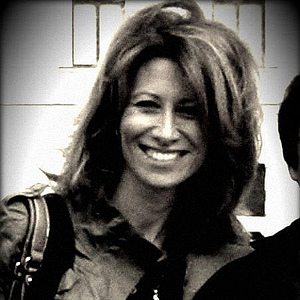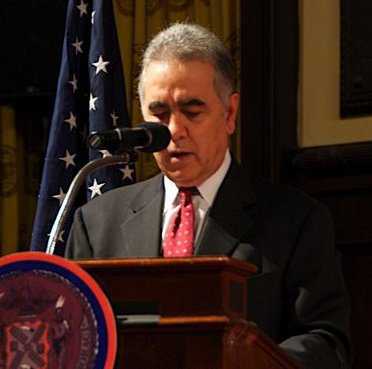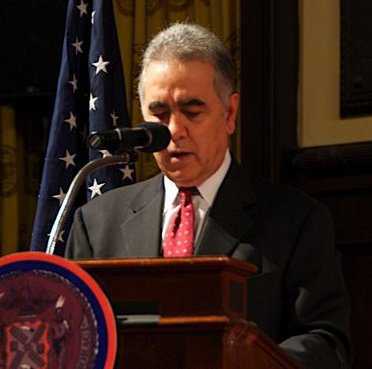Ferruh Demirmen, Ph.D.
Houston, Texas
[email protected]
It has been a fashion in Turkish media in recent years to question and attack the ideology and accomplishments of Kemal Atatürk – a hero figure for the vast majority of Turks. Columnist Mustafa Akyol, who writes in Turkish Daily News, and who for years has been trying to discredit Atatürk, is one such media personalty.
This disturbing trend gained acceptance in certain journalistic circles within the past decade, in particular after the AK Party’s second electoral victoy in 2007. The growing influence of the Gülen Movement has given impetus to the Atatürk-bashing trend.
The attack comes mostly from radical conservatives and idealogs – some outright religious bigots -that cannot make peace with Atatürk’s legacy. These critics typically yearn for a “Second Turkish Republic” that have the markings of a bygone Ottoman era. In a conference held 3 months ago at the Kadir Has University in Istanbul, for example, Mr. Akyol reportedly expressed preference for the “democracy” of the Ottoman era!
The putative reason for Atatürk’s failing, according to these circles, is that Atatürk was anti-Islam, depriving Turks of the freedom to practice their faith. There are even some critics who castigate Atatürk for abolishing Caliphate.
It would be unrealistic to expect these critics, being imbued by religious prejudice, to appreciate what Atatürk has accomplished. Many of these critics like Mr. Akyol are apologists if not the products of the Gülen Movement, and they advocate an Islamist Turkey instead of a secular one. Most of them have joined hands with quack Creationists that assault Darwin’s Evolution Theory. All because it doesn’t fit with their religious dogma.
To realize the hollowness of their arguments, and why Atatürk was not anti-Islam, these opponents should read the works of such researchers as Sinan Meydan (e.g., “Cumhuriyet Tarihi Yalanları”) and Professor Ethem Ruhi Fiğlalı (e.g., “Atatürk And The Religion of Islam”). They will learn, for example, that Atatürk tried to free Islam from the shackles of dogma and advanced the notion that religion is a matter between an individual and God. This is also what Islam teaches. Atatürk eschewed “false prophets” that stood between man and God. He held that Islam should be in conformity with reason and logic. He sponsored the construction of mosques in Tokyo and Paris.
These are not the hallmarks of a leader who was anti-religion or anti-Islam.
But Atatürk’s accomplishments go far beyond religion: He freed the Turkish nation from the shackles of imperialism and introduced reforms toward a civil society, science and modernity – from alphabet to secularism to women’s rights. Thanks to his reforms, the decadence and backwardness of the waning years of the Ottoman Empire was left behind.
It was a call for the Turkish nation to catch up with the West in science and modernity. Turks could still practice their religion, but the State did not adopt or sponsor a particular religion.
If the opponents of Atatürk like Mr. Akyol are breathing freedom in Turkey today, they owe it to the leadership of Atatürk.
If Turkey has any realistic hopes to join the EU, it is because a measure of westernization that Atatürk’s reforms have ushered in. (Reversals in recent years notwithstanding ).
The secular establishment Atatürk founded – through the Republic – was requisite for democratization in Turkey.
It was for good reason that Professor Arnold M. Ludwig of Kentucky University, after 18 years of study of the world leaders of the 20th century (“King of the Mountain”), picked Atatürk as the top winner among the contestants. That makes Atatürk a towering figure in world history. Opponents of Atatürk would do well to read that seminal book.
And it is also remarkable that the Greek Premier Eleftherios Venizelos, a former enemy of Turkey, nominated Atatürk for the 1934 Nobel Peace Prize.
The bigotry and ignorance of these opponents – pathetic as they are in their efforts – could be ignored if it were not for the fact that they regularly pontificate in printed and visual media. It is lamentable that these opponents do not show greater respect for the legacy of a visionary figure beloved by the vast majority of Turkish people. In no major newspaper in the U.S., for example, would one find derogatory remarks about George Washington.
Notwithstanding, there is little doubt that Atatürk will remain a towering historical figure among Turks. Reactionary forces that resist change and want to hold on to the past will not hold the Turkish nation hostage to their hatred and bigotry.
The West fought a hard and grueling battle for Enlightenment, and it eventually won. Turkey eventually will also win; for it must. This is what progress is about.





 In the 40s, Turkiye experimented with elevating the education level in the countryside. `Village institutes’ (Köy enstitüleri) were founded according to the ideas of philosopher-educator John Dewey, who had visited Turkey in 1924. In his opinion classical education had to be combined with practical abilities and had to be applied to local needs. However, it was the central government which regulated this by law. Mid September lessons started for the pupils of the village institutes. They took theoretical and practical lessons which were supposed to be useful for daily life in the village. There was also resistance against this secular and mixed education. It was feared that it would educate ‘the communists of tomorrow’. In 1953 the village institutes were closed.
In the 40s, Turkiye experimented with elevating the education level in the countryside. `Village institutes’ (Köy enstitüleri) were founded according to the ideas of philosopher-educator John Dewey, who had visited Turkey in 1924. In his opinion classical education had to be combined with practical abilities and had to be applied to local needs. However, it was the central government which regulated this by law. Mid September lessons started for the pupils of the village institutes. They took theoretical and practical lessons which were supposed to be useful for daily life in the village. There was also resistance against this secular and mixed education. It was feared that it would educate ‘the communists of tomorrow’. In 1953 the village institutes were closed.

